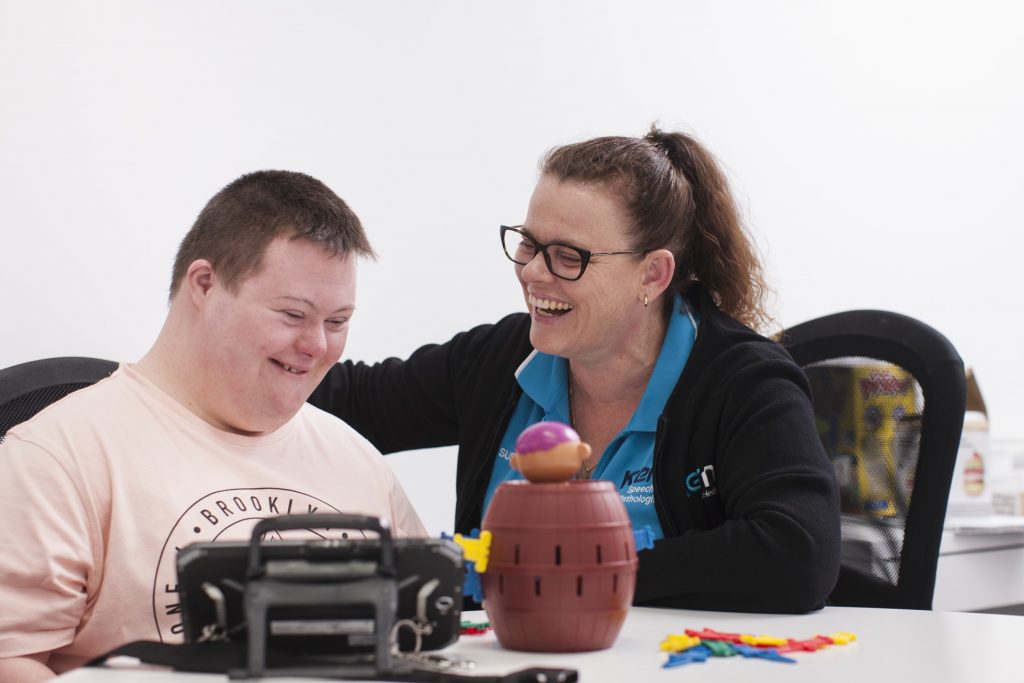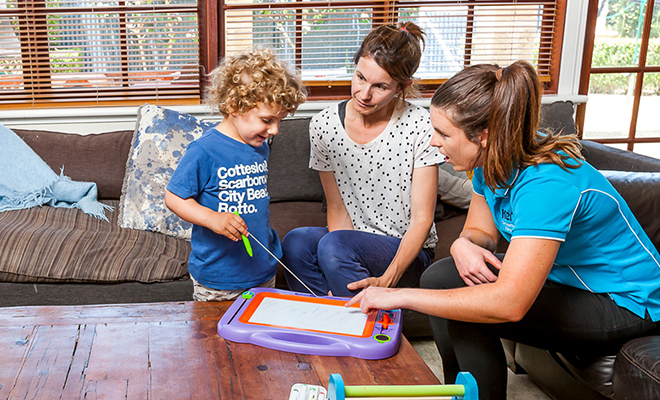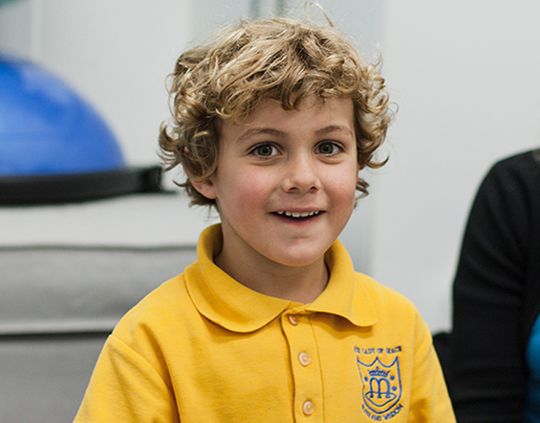What is Speech Pathology?
Everyone deserves to feel understood. Communication allows for interaction and connection to the world around you.
Speech pathologists assess, diagnose and treat communication disorders, including difficulties with speaking, listening, understanding language, reading, writing, social skills, stuttering, using voice as well as supporting people who experience difficulties swallowing food and drink safely.

How can we support you?
Our speech pathologists will work on the goals most important to you. This may include;
- Comprehension and following instructions, including listening and attention skills
- Language development
- Augmentative and Alternative Communication (AAC) including low and high tech options
- Articulation, speech clarity and fluency
- Safe and enjoyable mealtime management (chewing, feeding and swallowing ‘Dysphagia’)
- Social skills
- Using your voice

Speech therapy where you want it, when you need it.
Available as both a clinic-based and mobile therapy service, our NDIS speech pathologists work across the life span, from children to older adults, in the environment of your choice.
We provide Speech Pathology support across Atwell, Baldivis, Bertram, Bull Creek, Cockburn, Falcon, Golden Bay, Greenfields, Halls Head, Hammond Park, Jandakot, Kwinana, Leeming, Mandurah, Meadow Springs, Murdock, Orelia, Parklands, Piara Waters, Port Kennedy, Rockingham, Secret Harbour, Singleton, South Lake, Success, Waikiki, Warnbro, Wellard and all suburbs in between.
Getting the most from your NDIS plan?
At Kern, we work in a team around the person approach, a model with proven benefits for people with disability. This means we work in partnership with participants and their families to understand that they are the experts of their needs; while we bring knowledge and experience in disability services.
Kern can offer you the highest level of expertise in physio, occupational therapy, speech therapy, social work and psychology, meaning you can access all your therapy needs from the same team. This allows you greater choice and flexibility within your plan to adjust the type of therapy and frequency of services at any time, without the need to change the service booking. For example, if you achieve your physio goals early, or another therapy becomes a priority, we simply adjust your plan accordingly.
Evidence tells us that people with disability see better outcomes when there is direct family involvement in therapy. A therapists contact with a participant is often limited (e.g. 1 hour a fortnight), therefore, the family or support network have more opportunities to influence change and ultimately reach outcomes quicker. This means your therapist will work closely with the family, often splitting their time and consultations between seeing the child and seeing and communicating with the family.
The NDIS provides funding to participants for supports and services aimed at increasing their independence, inclusion, and social and economic participation.
Supports funded by the NDIS need to:
- be related to the participant’s disability
- not include day-to-day living costs that are not related to a participant’s disability support needs
- represent value for money
- be likely to be effective and beneficial to the participant, and
- take into account informal supports given to participants by families, carers, networks, and the community.

“I became a speech pathologist because I wanted to be a health care professional that children were excited to come and see. They don’t just receive therapy, they get to come and play games and it’s generally seen as a positive experience for them and their families.”
Isabella Sciullo
Speech Pathologist
